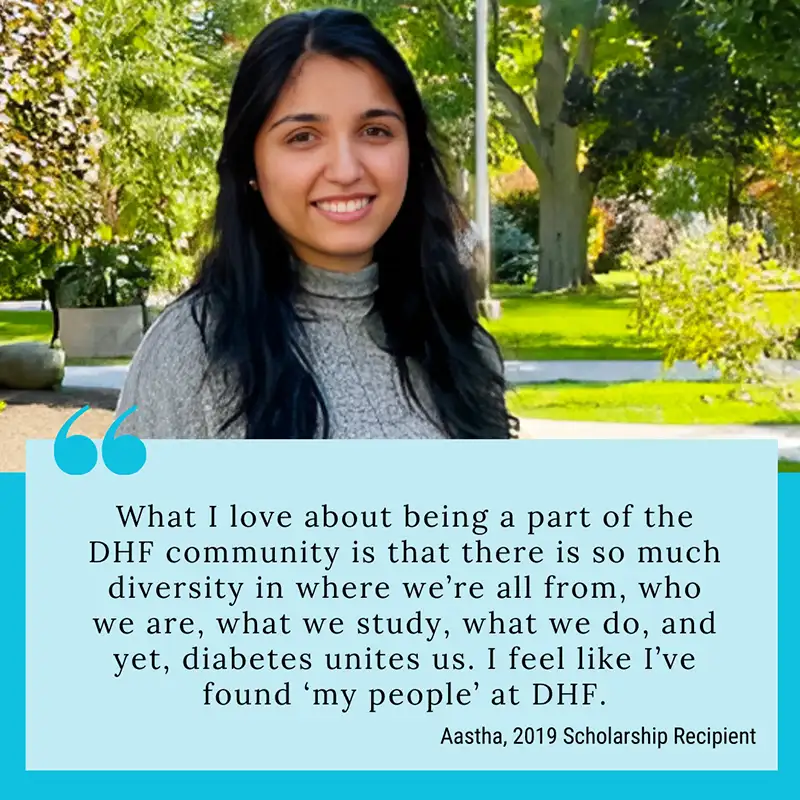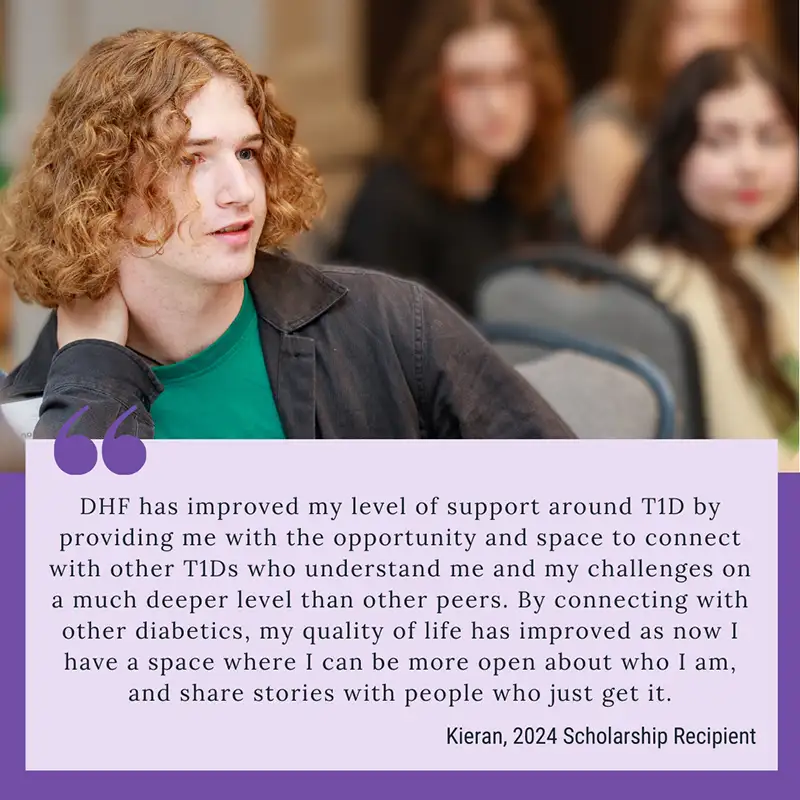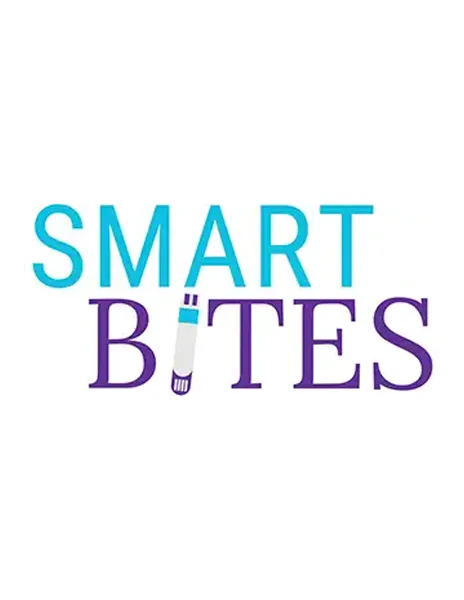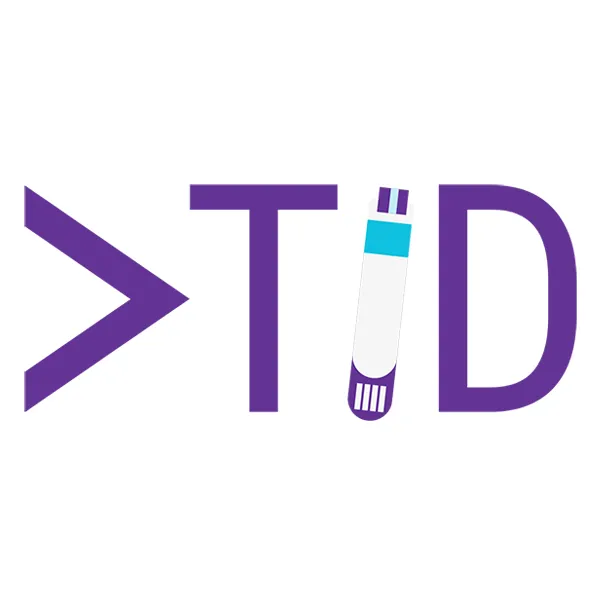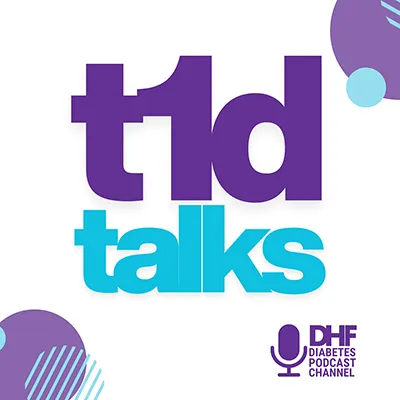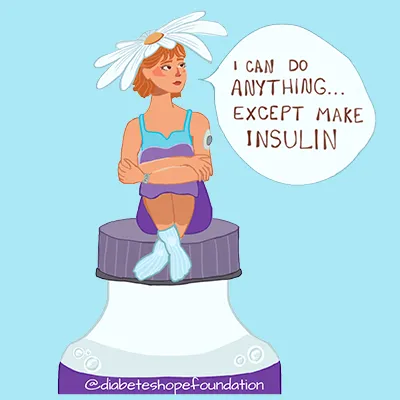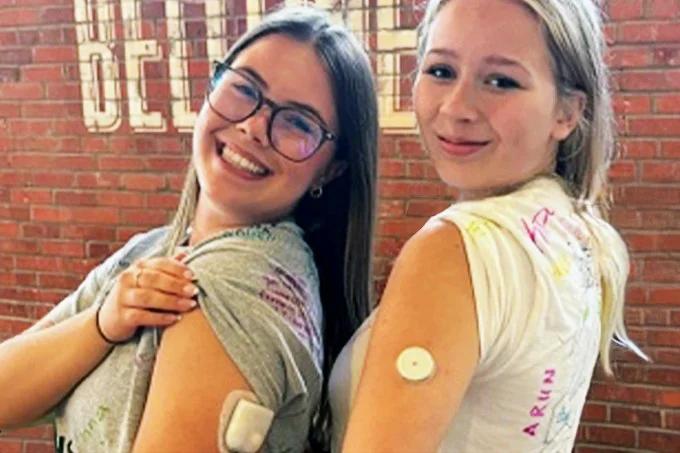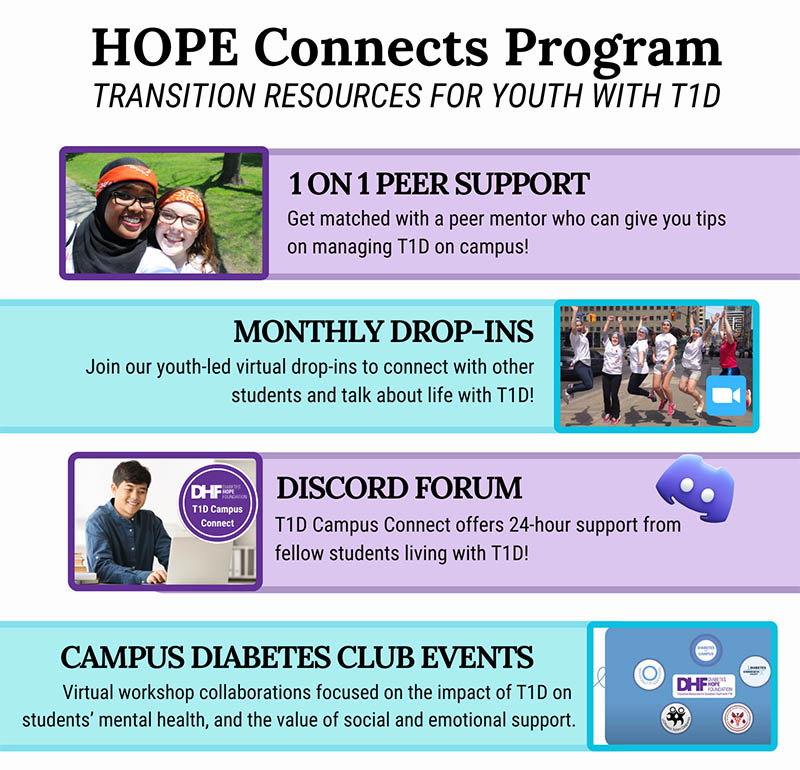


Preparing for an Empty Nest: Transition Tips for T1D Caregivers
Preparing for an Empty Nest: Transition Tips for T1D Caregivers
Preparing to send a child off to post-secondary school is an exciting and emotional milestone for any family. For parents of a child living with Type 1 diabetes (T1D), the transition comes with an added layer of planning, worry, and hope. Suddenly, the routines you’ve helped manage—checking blood sugars, organizing supplies, supporting sick days—shift into your child’s hands. For Debby and Andrew, parents of a youth with T1D, this moment was filled with both pride and uncertainty. What follows are the lessons they learned, the strategies that helped, and the honest realities they faced while preparing their child for life after high school.
Transition to Post-Secondary: Our Tips and Experiences
For parents, this stage of life is filled with lots of transitions and can be stressful regardless. Every family is different, but with the change to post-secondary we had to remind ourselves:
T1D Transition Planning
- Have an exit plan with the diabetes team before turning 18.
- For some individuals, turning 18 and transitioning into adult care happens before applying or accepting post-secondary.
- It can be hard to make decisions about pharmacies/where to register for adult diabetes care when they haven’t even applied for post-secondary or know acceptance possibilities.
- Applications can include lots of forms (e.g. for documentation, accessibility services, etc.), so consider asking if your current diabetes team can help before aging out. Try to start while you still have the diabetes team that knows you (depending on timing, you might not have met with a new team yet).
- Have a list in advance of numbers to call if problems with technology (if needed), sick protocol etc. especially for after hours.
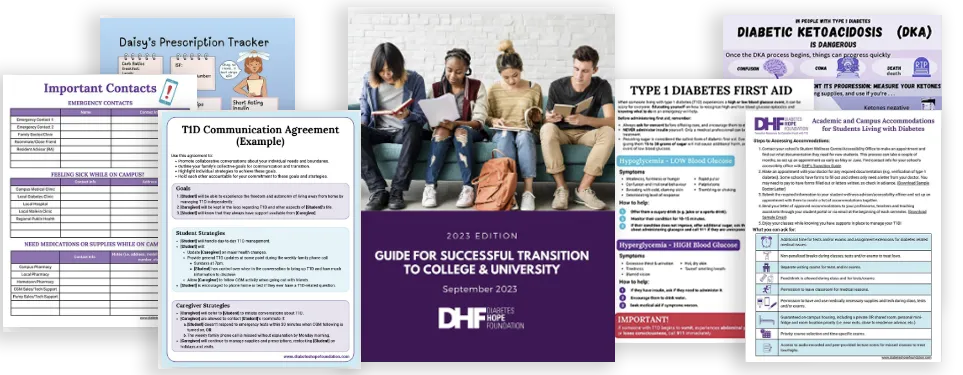
Emotional Adjustments During Transition
- There will be a short, intense period with lots of choices and uncertainties, but things will settle down and new routines will form fairly quickly.
- All families feel the stress of change whether diabetes is involved or not – diabetic families just have different things to consider and navigate.
- It can be hard for parents to ‘age out’. We go from being extremely involved and part of the team to sometimes feeling helpless or alone. There can be a void. You’re transitioning too!
- This also comes at a time when there are lots of other concerns, decision deadlines, and transition stressors that aren’t diabetes related (e.g., marks, potentially moving away, friends, relationship changes, etc.). Not always easy!
- Is it a real worry or anticipation? Excitement and nervousness can feel the same.
- Remind yourself some of these emotions and feelings are ‘normal’ regardless. It’s a big transition for everyone!
- Especially at the beginning, if you have ‘parent worries’ or unknowns (e.g., alcohol, being on their own, etc.) have a backup plan with a friend or someone you can talk to or something you can do to keep it in perspective before immediately contacting them.
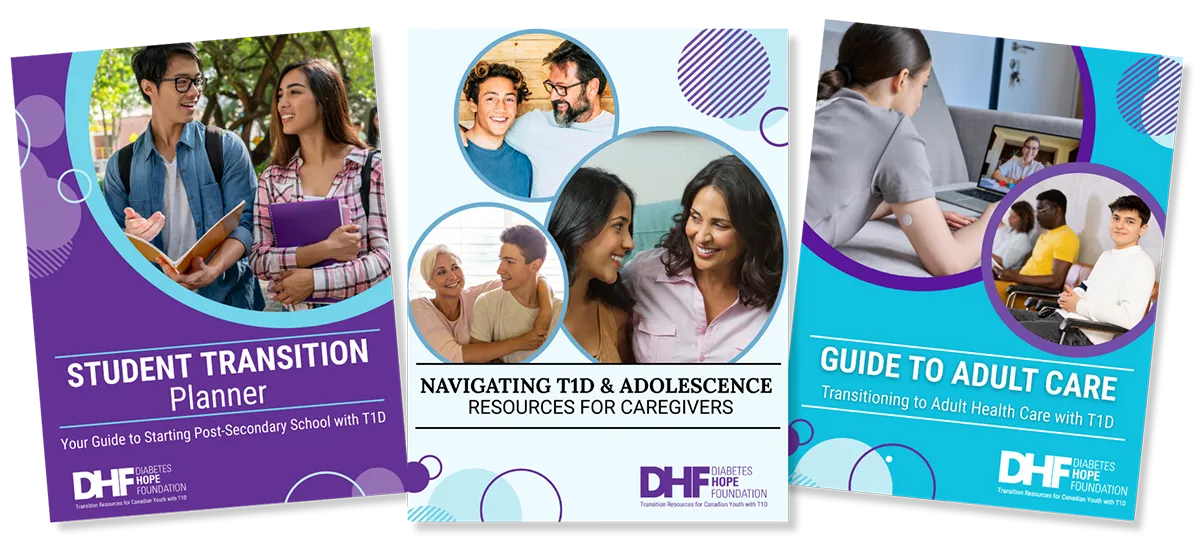
Building Confidence in Your T1D Child
- Preparing for the Transition to Adult Care: If they don’t already do so, have your child take the lead in their last pediatric diabetes team meetings. Soon they will be on their own and in adult care.
View DHF’s Guide to Adult Care > - Considerations for Technology: If they are considering any new technology (i.e., pump, CGM), have them consider getting it before 18 so their diabetes team can help with questions.
Watch DHF’s T1D Technology Webinar > - Advocating for Themself: Encourage your child to let roommate(s), new close friends, etc. know about their T1D and some information about what to do if serious lows.
- Applying for Student Accommodations: Encourage them to apply for (or at least investigate) student accommodations. It’s better to be proactive and never use them than to try to figure it out if/when a concern arises. Accommodations can vary, but at a minimum it’s good to know what happens if you have a severe low or need to take food into an exam.
Learn more about Accommodations in the Student Transition Planner > - Communication & Fostering Independence: Do what’s best for your situation. We made a decision (to try) not to make diabetes the main focus. Right from the start, we all decided our son would text us to confirm he ordered/picked up supplies or if he was treating a severe low – that way we knew it was okay, and we didn’t have to intervene. If he forgot or didn’t let us know in a predetermined amount of time, then we’d check in. Of course we’d still talk about it as needed, but we were trying to have it come from him, not us. For us, that arrangement has been really helpful and made us all more independent. Learn more about sharing responsibility and fostering independence in DHF’s T1D Caregiver Resource Guide >
PCMCH webinar, “Supporting Transitioning Youth With Diabetes Through Their Transition to Post-Secondary School” (Oct. 9, 2024), featuring parents Debby Pavlove & Andrew Cunsolo.
Support Resources for T1D Students & Caregivers
- DHF mentorship program: It’s good to know someone who has been through it and can share their experiences. Whether it’s for a ‘backup’ or to be very involved-mentors are there to help!
Learn more about Hope Connects Peer Support Program> - DHF Student Transition Planner: Get information and tools for students to access accommodations, self-advocate, tell others about their T1D, and get tips on navigating campus life.
View the Student Transition Planner > - DHF Transition Webinars: You can watch on own, without involving your child. Watch webinars online >
- Disability Tax Credit (DTC): for people with type 1 diabetes.
How to apply for the DTC > - T1D Caregiver Resources: Reach out, get information or help. It’s not a weakness! Community can be a wonderful thing!
View the DHF Caregiver Resource Guide >
Final Thoughts
For Debby and Andrew, the empty nest transition was as much about redefining their role as it was about helping their child step into adulthood with T1D. While the early days brought plenty of emotions and adjustments, they found that open communication, clear boundaries, and community support made the journey smoother. Their story is a reminder to other parents that although your involvement changes, your importance never does. With time, new routines, and trust in the foundation you’ve built, both you and your child can grow with confidence through this next chapter.
“It is not what you do for your children but what you have taught them to do for themselves that will make them successful human beings.” ~ Ann Landers
About the Authors
As parents of a youth with Type 1 diabetes, Debby and Andrew Cunsolo understand the unique challenges of the empty nest. Their lived experience offers encouragement and guidance for families preparing for this important milestone.
Follow Us:
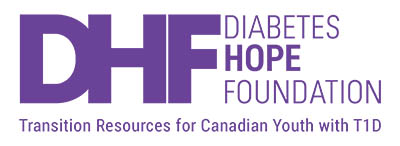
Diabetes Hope Foundation (DHF) is a Canadian not-for-profit organization founded in 1999. The foundation’s mission is to provide education and resources to help youth with diabetes transition to a healthier tomorrow. Learn more about our youth programs and resources below.
Stay Connected!
Join our mailing list to receive occasional newsletters with the latest news and updates about our programs, resources & upcoming events!
Recent Posts
Get Ready to Transition!
Join our DHF Community!
